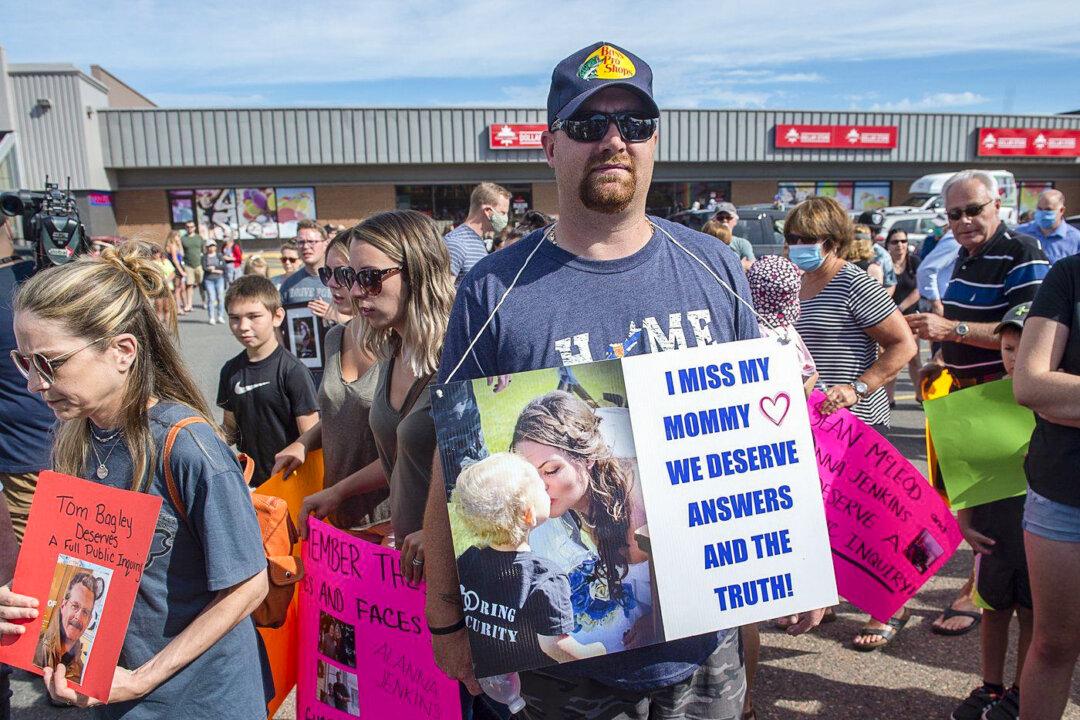On July 22, 2020, about three months after a gunman murdered 22 people in Nova Scotia, a procession of grieving relatives marched to the local RCMP detachment, demanding an independent and open inquiry into the rampage.
Nick Beaton, who lost his pregnant wife Kristen Beaton in the April 18-19, 2020, killings, wore a sign with a photo of his young son kissing Kristen. “I miss my Mommy,” it read. “We deserve answers and the truth.”





